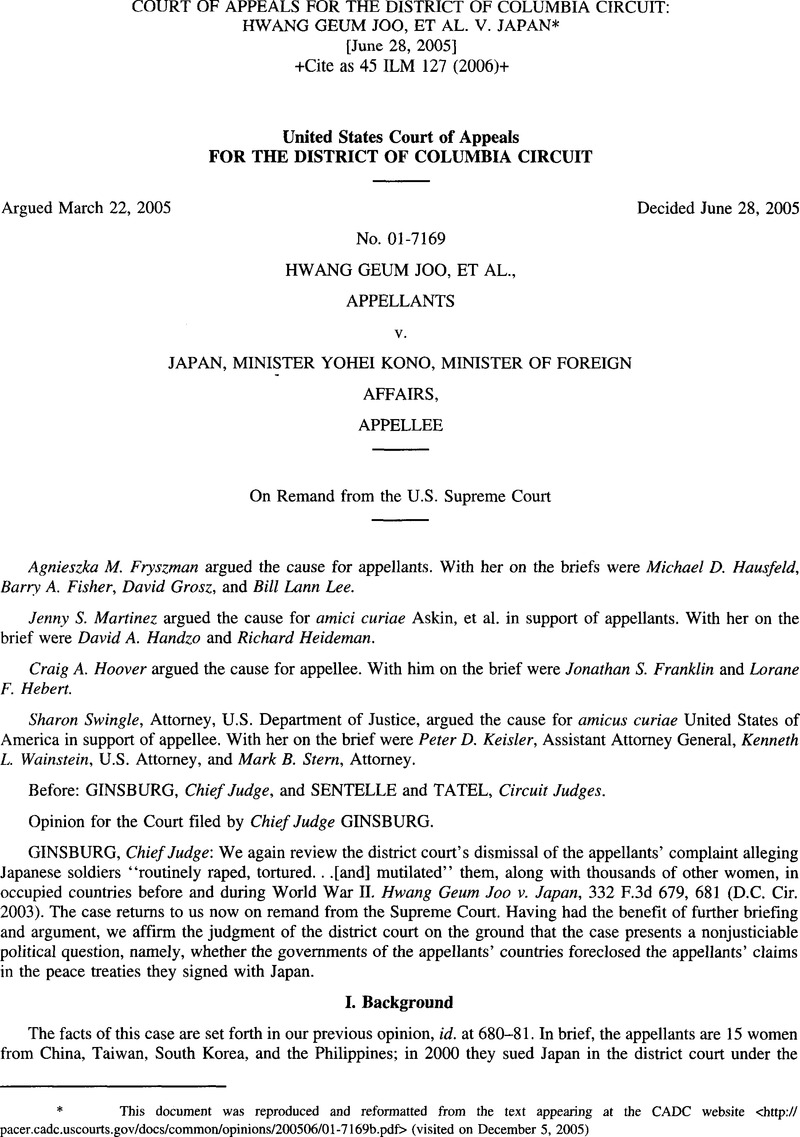No CrossRef data available.
Published online by Cambridge University Press: 27 February 2017

* This document was reproduced and reformatted from the text appearing at the CADC website <http://pacer.cadc.uscourts.gov/docs/common/opinions/200506/01-7169b.pdf>(visited on December 5, 2005).
1 Other factors that indicate a political question, the Court inBaker explained, are: “a lack of judicially discoverable and manageable standards for resolution]; or the impossibility of deciding without an initial policy determination of a kind clearly for non judicial discretion; or the impossibility of a court's undertaking independent resolution without expressing lack of the respect due coordinate branches of government; or an unusual need for unquestioning adherence to a political decision already made; or the potentiality of embarrassment from multifarious pronouncements by various departments on one question.”Id.
2 Despite the district court's having dismissed their complaint on the ground that “the series of treaties signed after the war was clearly aimed at resolving all war claims against Japan” and that a United States “court is not the appropriate forum in which plaintiffs may seek to reopen those discussions,” 172 F. Supp. 2d at 67, the appellants argue for the first time in their post-remand Supplemental Reply Brief that because they allege injuries dating back to 1931, their claims did not arise solely from “the prosecution of the war,” which in Article 8(a) of the 1951 Treaty is defined as having begun on September 1, 1939, the day Germany invaded Poland. This argument, raised for the first time in the appellants’ fourth and final brief on appeal, comes far too late for the court to consider,cf. Sierra Club v. EPA, 292 F.3d 895, 900 (D.C. Cir. 2002) (“our caselaw makes clear that an argument first made in the reply comes too late“).